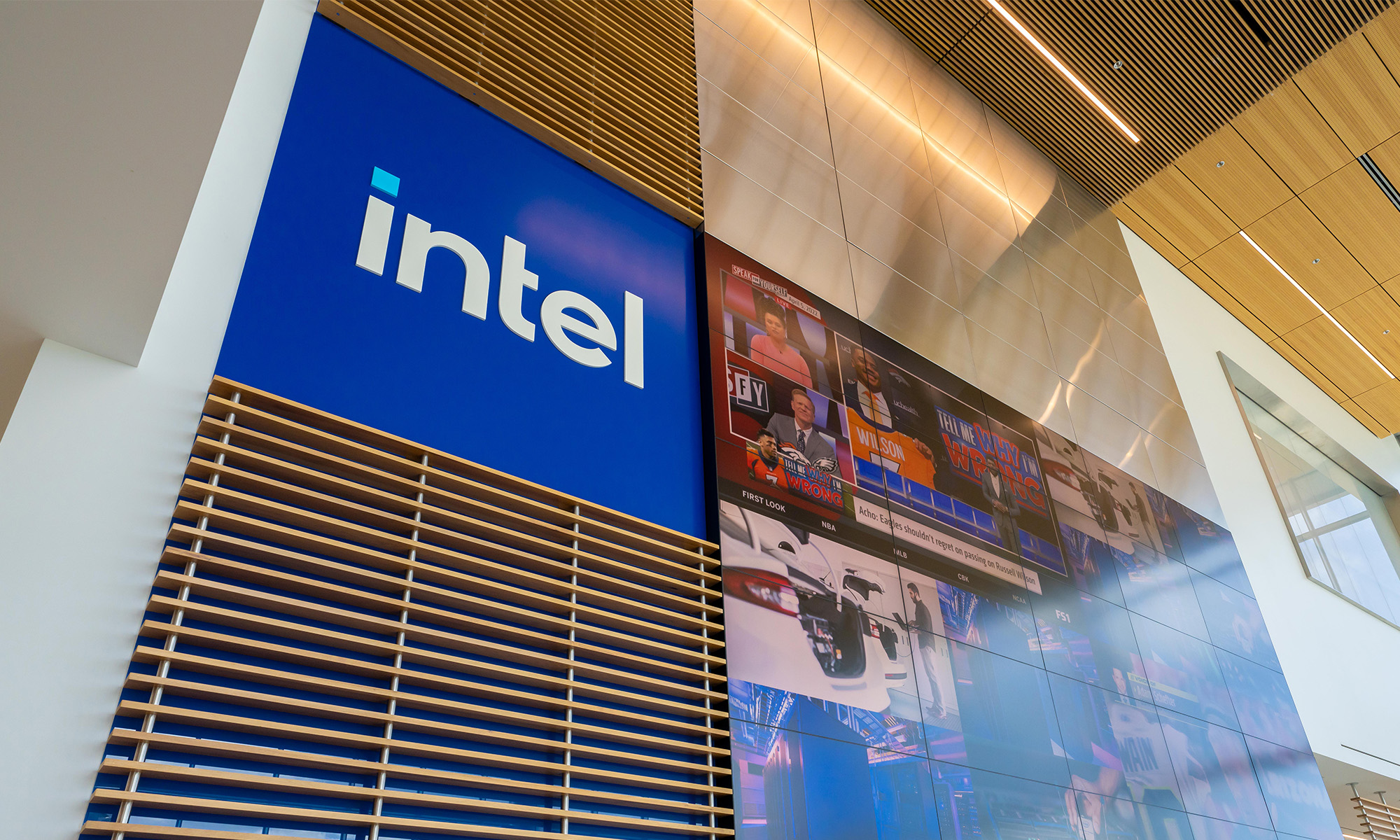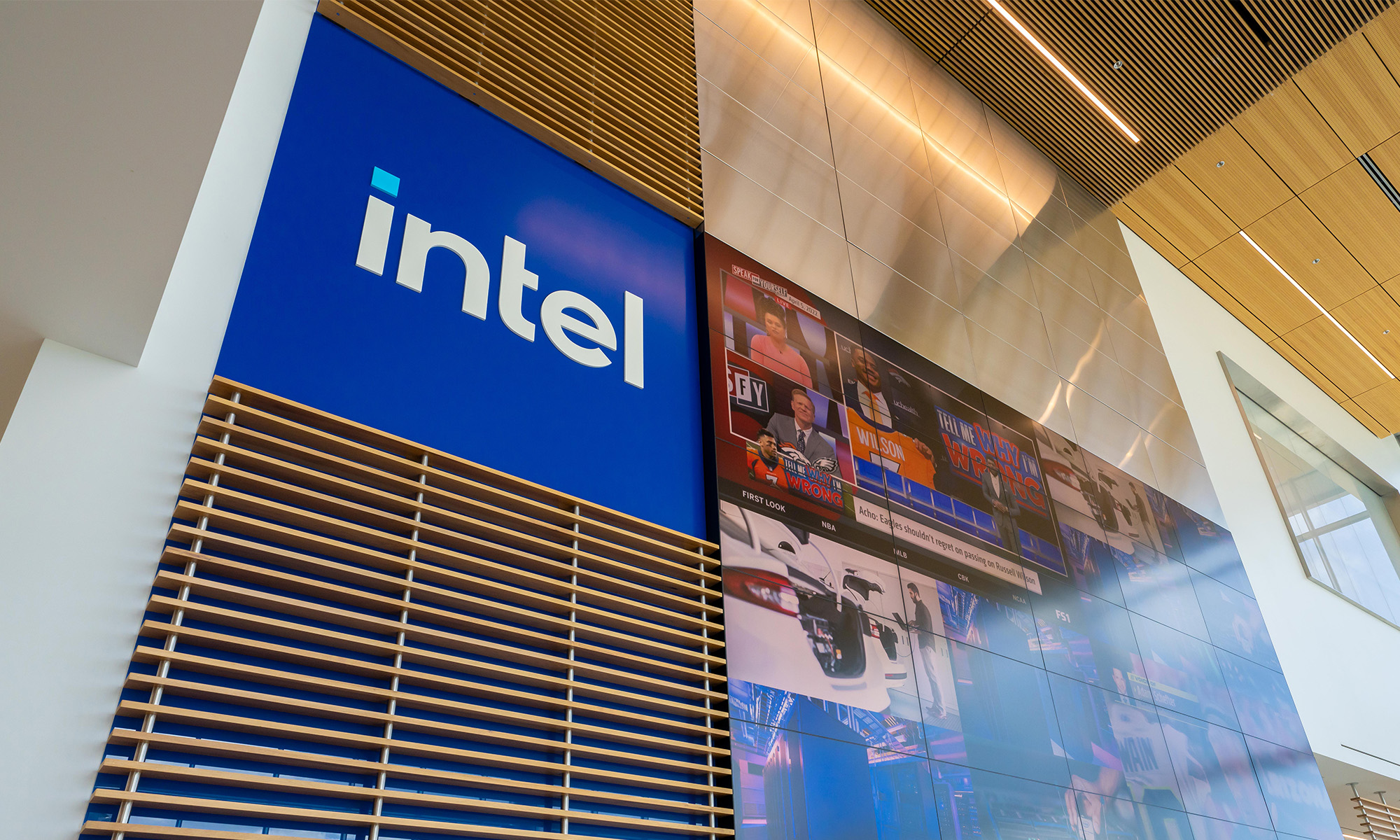According to a report from Semiconductor Engineering, Intel (INTC +0.11%) was originally supposed to start installing equipment into its first 10-nanometer manufacturing plant this summer. However, that same report -- citing "industry sources" -- says Intel won't start moving equipment into this plant until the second quarter of 2016.
That suggests volume production on 10-nanometers won't begin until sometime after the second quarter of 2016, and 10-nanometer product launches will be even further out. That's a pretty significant delay that, if true, should worry investors.
Where's Intel's lead going?
Intel has often bragged that it is first to develop next-generation manufacturing technologies, giving it an edge over the competition. However, thanks to Intel's delayed roll-out of its 14-nanometer technology, the delta between when Intel went into production on its 14-nanometer technology and when Samsung (NASDAQOTH: SSNLF) went into production on its own 14-nanometer technology was well under a year.
Now, I would argue that Intel's 14-nanometer technology is more advanced in a number of ways than competing 14/16-nanometer technologies, so I believe the lead is longer than what the production start timing would imply. However, if you look at what Intel's competitors are saying about their respective 10-nanometer technologies, both Samsung and TSMC (TSM +1.33%) are targeting volume production of their 10-nanometer technologies in late 2016.
If Intel is installing equipment for its 10-nanometer factories in the second quarter of 2016, then Intel probably doesn't have too much of an advantage on TSMC/Samsung in terms of the timing of volume production start at 10-nanometers.
Intel will need breakthrough technology to secure its lead
If Intel is going to keep its lead at the 10-nanometer generation -- at least if Samsung/TSMC hit their own production targets -- then it's going to have to do it by having superior technology in terms of performance and/or density.
TSMC's Mark Liu claims TSMC's 10-nanometer technology will "achieve industry-leading speed, power, and gate density." It's not clear how much TSMC knows about Intel's 10-nanometer technology, but it looks like the bar Intel will have to clear in order to maintain a material lead might be quite high.
Intel's silence isn't helping
At Intel's investor meeting last year, company executives said they didn't want to talk about 10-nanometer production timing until the 2015 investor meeting essentially for competitive reasons. Given that TSMC and Samsung have now publicly committed to going into production on their 10-nanometer technologies in late 2016, and given the report that Intel is delaying 10-nanometer equipment move-in, it seems to me that this explanation was simply smoke and mirrors.
What is actually going on?
If Intel is delaying equipment move-in, it means the company isn't confident enough in the technology to be preparing for a volume ramp. In fact, remember how Intel said it had experienced yield difficulties in ramping its 14-nanometer technology, leading to delays? Well, I wouldn't be surprised if -- assuming the report from Semiconductor Engineering is true (and it is a reputable publication, so I believe it to be true) -- Intel is seeing similar yield problems at the 10-nanometer generation, leading to these reported delays.
What now?
I don't think we'll get a formal update on the status of the company's 10-nanometer manufacturing technology and volume ramp plans until November of this year, so until then, the best investors will have are various reports that trickle out from time to time.







